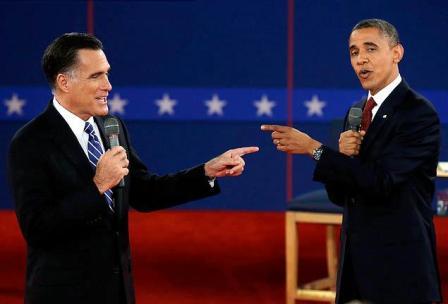During the second Presidential debate, Governor Romney and President Obama engaged in a heated exchange about energy development on public lands. My ears perked up and my eyes went from my hunting area maps right to the TV.
But I didn’t find enlightenment. The candidates simply said what we already know. Both Governor Romney and President Obama support energy development on our public lands. That’s no surprise, and it is going to be an important part of our domestic energy policy in the years to come. The question for hunters and anglers is: How do we ensure that development proceeds in a manner that protects our hunting and fishing resources?
Traditionally, sportsmen’s groups, conservationists, and environmentalists have focused on influencing policy in Washington D.C. and influencing land management decisions by federal agencies to reduce the impacts of oil and gas development on public lands. That still may be an effective means to an end. But here at Trout Unlimited (TU) we think there is a better way. We are trying to work directly with oil and gas companies to help them develop energy on public lands in a way that protects the places that you love to hunt and fish.
We believe that working with energy developers is the best way to protect our resources for two primary reasons. First, we think energy companies want to do the right thing. Many of TU’s members work in the oil and gas industry or depend on the oil and gas industry for their livelihoods. Moreover, many of the people we have met that work in the energy industry love to hunt and fish. They choose to work in the energy industry in part because it allows them to be near public lands and chase deer and trout in their free time. It stands to reason that these folks want to develop energy responsibly so they can make a living while preserving habitat for hunting and fishing.
Second, we believe that if you want something done, you should talk directly with the people that can do what you want done. For example, my neighbor’s dog wouldn’t stop barking last year. All day, all night. I had a few options. I could try and organize the neighborhood to help pass a city ordinance banning dogs. I could call the city authorities and lodge a complaint under the noise ordinances. Or I could walk over to my neighbor’s house and talk with him about the problem. I chose option number three, and it worked. Ninety nine times out of a hundred it would work, and my neighbor would address the problem. He kept the dog inside at night and took it to obedience school. If I had called the authorities or tried to pass a ban on dogs, however, I would have created animosity with my neighbor and that could have lead to a host of other problems.
Sportsmen, anglers and the energy industry are, as a matter of law and fact, neighbors on our public lands. At TU we are focusing our efforts on talking with our neighbors about our concerns, and it’s working. We have begun to collaborate with a number of companies in the Rocky Mountain West on responsible energy development. Shell Oil has been an early leader – working directly with TU on its energy development proposals in Routt and Moffat Counties in Colorado. So far, Shell Oil has incorporated wildlife protections that TU supported into a drilling proposal in Routt County, agreed to implement a groundwater monitoring program proposed by Routt County, and gone above and beyond regulatory requirements to incorporate protective measures into its proposal based on citizen’s concerns. Additionally, Shell Oil contributed $10,000 towards a river restoration project TU is spearheading on a nearby creek. We are hoping to build on these successes and continue to work directly with Shell Oil to protect fish and wildlife in Colorado on a much larger scale.
Despite these early successes, we still have a long ways to go. Energy development on public lands is expected to increase dramatically over the next 20 years, and we need more energy companies to work with us. Some conservationists have been calling the authorities and trying to ban their neighbor’s activities for years. Companies that have experienced this may be reluctant to trust our organization. That’s why it’s important that we start to highlight examples where energy companies are practicing responsible energy development. We want TU members to be able to recognize and support companies that are going the extra mile to protect their sacred hunting and fishing grounds.



